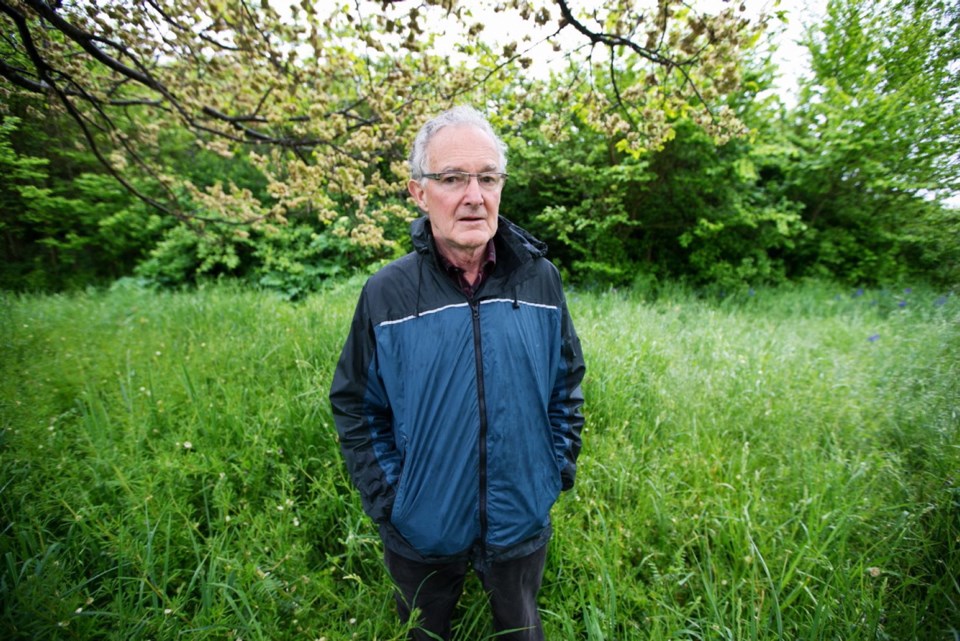The first alarm bell went off for Dr. Ted Cormode when his daughter called from her car saying she was frightened.
The Langford woman had numbness in her neck, going up the side of her face, Cormode said.
His daughter, 43, has since been diagnosed with Lyme disease, an inflammatory infection spread by ticks, and is undergoing treatment, he said. But Cormode — a retired pediatrician — believes that a lack of co-ordinated action against the disease means she has suffered longer than she should.
“I would say this is the most confusing and controversial disease I’ve ever encountered in my more than 45 years of practice. And I don’t understand why people aren’t working together to come to a conclusion.”
Cormode said he is not an expert on Lyme disease, although he has done research. He is also a former coroner and was a member of the pediatric death review committee in Ontario.
He plans to attend a day of awareness events called Let’s Talk About Lyme, to share his story as well as learn from others.
Cormode’s daughter, an avid outdoorswoman, showed symptoms before she phoned her father.
She had extreme headaches, light sensitivity, ringing and pain in her ears and extreme fatigue. She felt what she thought was a new mole on the back of her neck, but after a few days, it fell off in the shower. It looked like an engorged tick.
The woman visited a doctor, who identified the symptoms as consistent with Lyme disease but only prescribed ten days of antibiotics. She felt better, but a few days later, the numbness came and she phoned her father.
Cormode said the process has been one of inconsistencies and confusion.
“Testing is extremely controversial,” he said.
While some doctors look at blood tests for diagnosis, those tests have limited sensitivity and specificity, according to an article in the Canadian Adverse Reaction Newsletter published by Health Canada. They are not recommended as a primary diagnostic tool, only as a support for clinical diagnosis, which occurs through examination of a patient’s symptoms, physical exam, travel history and family medical history.
In his daughter’s case, test results for Lyme disease came back negative in Canada, but positive in the United States.
He also said “common knowledge” about the disease can be misleading. For example, although the “bull’s-eye rash” is a strong indicator of infection, many people who are infected have no knowledge of a tick bite.
“When you get that information, as a general practitioner, you think, ‘Well, you didn’t get a bull’s-eye rash, so you don’t have the disease.’ Then you combine that with a test with low sensitivity and specificity and you’re turning a lot of people away that would have gotten better,” he said.
Cormode said he would like to see better diagnostic tools and stronger early treatment, which he believes would have made a difference for his daughter. She missed months of work due to severe daily headaches.
“She’s better now than she was before she started on treatment, but she’s got a way to go,” he said.
“I am very sad that I missed her diagnosis, that’s what’s hurting me.”
Let’s Talk about Lyme will be held Saturday from noon to 3 p.m. at the Fairfield Community Place. Green Party Leader Elizabeth May, who introduced Bill-C442 calling for a national strategy to better diagnose and treat Lyme disease, will speak.
The event is organized by the Victoria Lyme Disease Awareness and Support Group, which counts 205 members, a number that grows by about three to four per month, according to facilitator Merina Brisdon.
Other speakers include Jim Wilson, president of the Canadian Lyme Disease Foundation, MP Murray Rankin, Lyme victims’ advocate Gwen Barlee and naturopaths Jasmine Wong and Maria Payne Boorman.
There will also be children’s activities, displays and videos on prevention.
